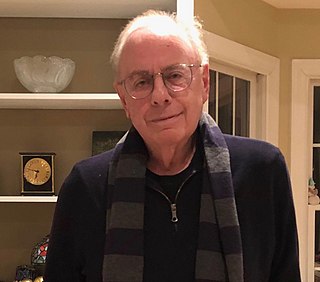A Quote by Oswald Chambers
God always ignores the present perfection for the ultimate perfection.
Quote Topics
Related Quotes
What is the purpose for which Masonry exists? Its ultimate purpose is the perfection of humanity. Mankind it self is still in a period of youth. We are only now beginning to acquire a consciousness of the social aim of civilization, which is man's perfection. Such perfection can never end with physical perfection, which is only the means to the end or spiritual perfection.
The perfection of the effect demonstrates the perfection of the cause, for a greater power brings about a more perfect effect. But God is the most perfect agent. Therefore, things created by Him obtain perfection from Him. So, to detract from the perfection of creatures is to detract from the perfection of divine power.
God wanted man to know him somehow through his creatures, and since no creature could fittingly reflect the infinite perfection of the Creator, he multiplied his creatures and gave a certain goodness and perfection to each of them so that from them we could judge the goodness and perfection of the Creator, who embraces infinite perfection in the perfection of his one and utterly simple essence.
In this world, perfection is an illusion. Reagrdless of all those who utter the contrary, this is the reality. Obviously mediocre fools will forever lust for perfection and seek it out. However, what meaning is there in perfection? None. Not a bit. ...After perfection there exists nothing higher. Not even room for creation which means there is no room for wisdom or talent either. Understand? To scientists like ourselves, perfection is despair. - Kurotsuchi Mayuri (Bleach 306)
The Greek word euphuia, a finely tempered nature, gives exactly the notion of perfection as culture brings us to perceive it; a harmonious perfection, a perfection in which the characters of beauty and intelligence are both present, which unites "the two noblest of things" - as Swift most happily calls them in his Battle of the Books, "the two noblest of things, sweetness and light."
Perhapsthemost sublimeinsights oftheJewishprophets and the Christian gospel is the knowledge that since perfection is love, the apprehension of perfection is at once the means of seeing one's imperfections and the consoling assurance of grace which makes this realization bearable. This ultimate paradox of high religion is not an invention of theologians or priests. It is constantly validated by the most searching experiences of life.





































